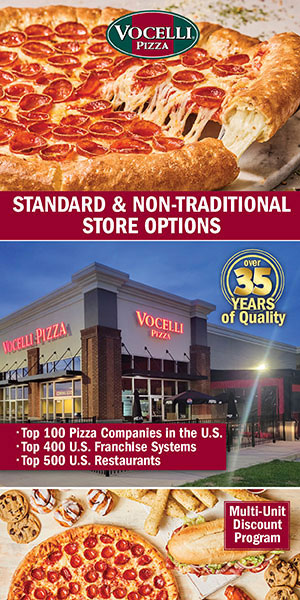Unit Management: Gulf Coast Multi-Unit Operator Talks Hard Numbers
Greg Hamer, Sr., worked in the oilfield service industry for two decades before dipping his toe into franchising. He knows about hard work and about managing assets. Today, he is the largest Taco Bell franchisee in the state of Louisiana. Hamer has operated B&G Food Enterprises out of Morgan City, La., since opening that first Taco Bell unit in 1982. In the 1990's, the company added KFC and Pizza Hut units to the portfolio and most recently, Teriyaki Experience.
After nearly three decades in franchising, Hamer oversees an empire of 55 units stretching from Mississippi through Louisiana and into Texas. It's a large operation that generates $64 million annually and keeps a payroll of more than 1,400 employees.
Hamer, who serves as chief executive officer, says that prudent financial management and unit economics oversight plays a pivotal role in how he manages the operation. But, he says, customer service can never be marginalized. He shared some of his core philosophies and strategies with us.
Explain your unit economics strategy?
We treat each unit individually to operate the best we can but compare all units to each other in an attempt to improve best practices.
What are the essential components that affect your business the most?
Customer satisfaction is tops because it affects customer counts which affect all economics.
Exactly how do you improve the performance and survivability of your business?
Training, training, and training
Do you have any financial training or background? How has that helped?
I have a BS degree in business. I hope it has helped, but Lord knows I have made enough mistakes in my 40 years in business.
Do you review your financials frequently? How often?
Yes, every 28 days
Which numbers and reports do you review?
We do a financial on every restaurant and then on each brand and then the total company.
Talk about how reviewing the financial data helps you identify what's right and what's wrong?
While it is always looking back, it enables us to seek to make corrections for the future, and keeps us focused on our successes and failures.
Which financial data is most important?
At the end of the day...it is the bottom line. Without profits we will not stay in business, but maximizing profits has to be weighed against customer service for our long-term success. We prefer to strive for better customer service rather than maximizing profits for our long term goal.
Do you have a financial "scorecard" (or financial report card) that helps you measure your efforts?
Yes, we have certain targets that we measure each individual restaurant's performance against.
Do you "benchmark" your financials for all your units? Yes
Summarize the importance of understanding the balance sheet/cash flow?
You have to have cash flow in the restaurant business or you die. The balance sheet is a snap shot of our financial condition at that point in time.
How do you manage your credit line and "bankability"?
We strive to maintain a healthy cash balance and perform within the ratios that our lenders have set for us. If we do those things, and show a profit, and don't need the loan, lots of folks have money to lend.
How has keeping an eye on unit profitability benefitted your business?
It is a business of pennies and we have to watch the small stuff.
Share this Feature
Recommended Reading:
| ADVERTISE | SPONSORED CONTENT |
FRANCHISE TOPICS
- Multi-Unit Franchising
- Get Started in Franchising
- Franchise Growth
- Franchise Operations
- Open New Units
- Franchise Leadership
- Franchise Marketing
- Technology
- Franchise Law
- Franchise Awards
- Franchise Rankings
- Franchise Trends
- Franchise Development
- Featured Franchise Stories
| ADVERTISE | SPONSORED CONTENT |

$20,000
$150,000





 The multi-unit franchise opportunities listed above are not related to or endorsed by Multi-Unit Franchisee or Franchise Update Media Group. We are not engaged in, supporting, or endorsing any specific franchise, business opportunity, company or individual. No statement in this site is to be construed as a recommendation. We encourage prospective franchise buyers to perform extensive due diligence when considering a franchise opportunity.
The multi-unit franchise opportunities listed above are not related to or endorsed by Multi-Unit Franchisee or Franchise Update Media Group. We are not engaged in, supporting, or endorsing any specific franchise, business opportunity, company or individual. No statement in this site is to be construed as a recommendation. We encourage prospective franchise buyers to perform extensive due diligence when considering a franchise opportunity.